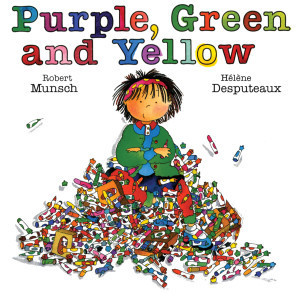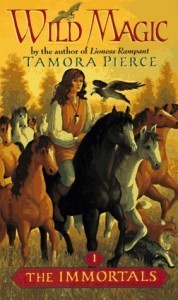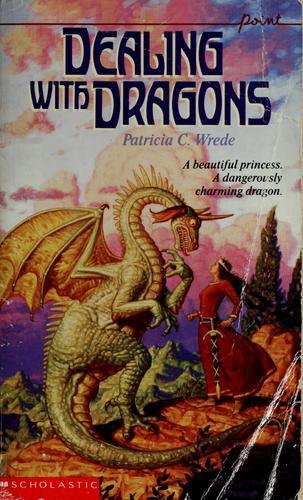Kate Larking's Blog: Anxiety Ink, page 69
April 14, 2014
Sisters; or, The Danger Of Boxes
I am the baby of the family. Kind of. It’s complicated. Somewhere, there is a flow chart that explains it.
Point is, I’m extremely close in age to one sister. Her birthday was yesterday, in fact. She has a genius IQ. (Seriously — I’m intelligent to the point that my favorite part of college was the feeling of not being the smartest person in the room, but she can make me look like the village idiot.) If that weren’t bad enough, she is amazingly creative and brilliantly artistic.
My only consolations are that I have better people/social sense.
Because, as every younger sibling ever knows, it’s all a competition. (It took me years to figure out that she never saw it that way, and longer still to come to terms with the fact.)
She started sewing at two, and all anyone could talk about was how talented she was. So when our grandmother began teaching me and my work resulted in little more than a pat on the head, I gave up. Sewing was my sister’s thing from that point forward. Not mine.
Now, as an adult, I want to learn how to sew. And my first lesson with my grandmother was eye-opening; I hadn’t felt insecurities like that since high school. All because two-plus decades saying, “I don’t/can’t do it,” and, “It’s not my thing.”
See, words have power — as writers, we should know that better than anyone — and words like that create boxes. Boxes that limit potential. I don’t mean cardboard boxes. More like concrete. Breaking out of one is stupidly, ridiculously hard.
For years, I did the same thing with short stories. “They’re not my thing. I write novels.” I said this because my ideas were for longer stories and all anyone seemed to ask me about or be interested in were short ones. Because the ones I had written received lukewarm responses, at best.
I was a teenager, fumbling blindly as I tried to learn the craft of writing. Of course they were crap!
After college, I wrote a few short stories, but I didn’t submit them anywhere. What was the point? They weren’t my thing, anyway.
Then last year, I was approached to contribute to an anthology. I said yes because I knew I might be able to polish one of those post-college stories into something halfway decent, not because I had any confidence to write another one. But that’s what I ended up doing, anyway. The concept wouldn’t leave me alone, so I ended up writing something else. And I think it’s pretty awesome.
(Shameless plug: if you haven’t read it yet, you can find it in the Fight Like a Girl fantasy anthology.)
After that anthology, I still had hang-ups. Sure, I’d now written short stories — halfway decent ones — but those were flukes.
Then I met R. B. Wood of the Word Count Podcast, and he managed to talk me into submitting. (I have stories in episodes 32, 33, and 38, if you’re interested.)
I don’t know when, exactly, the change happened. I didn’t notice it until a conversation in which I was told of another beginning writer who didn’t write short stories.
And I cringed.
So that’s how it sounds: like nails hammering the box in place. At least, that was my impression, coming from my own experience.
The more something is said, the more it is realized in actuality. Magical thinking, I’ve heard it called. It can open up possibilities, or it can limit you. And it’s always harder to break out of a box then to build one.
If your writer-brain just can’t work with short form — or the reverse, if longer forms aren’t your comfort zone — there’s nothing wrong with that. But that can also change with time, experience, and life in general. The best opportunities often fall outside comfort zones.
Just please try not to do what I used to. It’s not easy to pursue any form of art. Why impose limits on yourself that might make it even more difficult?
The post Sisters; or, The Danger Of Boxes appeared first on Anxiety Ink.
April 10, 2014
Pen Names
Noms de plume are really on my mind lately. I’ve mentioned before that I’m a multi-genre writer, and I can’t decide if I should use a pen name for each genre I dip my toe into or not. On the one hand, I want to use my own name because I like my name and all that. On the other, I don’t want every piece I write in each genre to be cross examined and compared to each other because we all know there are people out there who hold expectations regardless of the genre they are reading. I have choice words for these people but I will keep them to myself.
There are other things in different columns of this debate but these are the big two.
My prime example is Kelley Armstrong. Armstrong hit it big with her Women of the Otherworld series, a 13 book compendium with numerous anthologies and short stories set in the supernatural world she created. She has also written two YA trilogies, the first of which came out roughly after book 9 of WotO was published (I don’t feel like researching but I feel that that’s right). She has also published two books in a mystery series she started way back when WotO was very young. And in 2013 her newest series came out, Cainsville.
Her YA took off because the kids don’t really know about her adult horror series -that’s my opinion anyway. The other series haven’t developed a cult following like WotO, though. If you go on Goodreads you’ll see the ratings aren’t as high and the reviews not very positive. And I tell you, it’s not Armstrong’s lack of narrative skill. I’ve read everything but the YA and I will defend her writing to the end. I blame people who want her to rewrite WotO and don’t understand generic differences. Again, choice words!
Do I think I’m going to gain the success Kelley Armstrong has? Excuse me while I get off the floor where I was rolling around laughing. Still, I seriously don’t want my work judged unfairly. But, a pen name needs to mean something to me. I can’t just pull a random name out of the air and call it my own.
This is my dilemma. And I really need some input! Have you used or considered a pen name? What’s your stance on them in general?
April 9, 2014
Writing Camp
It’s April and I’m taking part in Camp NaNoWriMo.
When I was a teen, I went to a writing camp called YouthWrite. When I was there, I grew quite a bit and made a bunch of friends who have kept me firmly entrenched in the local writing community. Some years were better than others and some years were certainly more dramatic than others (boys and girls leave to get ready for bed separately! O.o). In my second last year at YouthWrite, it gave me a safe place to come out and that was immensely valuable for me as a person.
Sharing space with a group of likeminded people is fantastic for any occupation. But for writing, it’s like putting together a group of kids with multi-coloured waterballons filled with tidbits of inspiration and fantastic tales.

There are a few places that have been able to rekindle this feeling for me. But the main one, complete with bedtime stories, is Sirens. A bunch of like-minded readers and writers all eager for women in fantasy.
What have been some of the most formative experiences for you as a writer? Where have you been able to sink into your passion and be boosted by those around you with a true understanding for your dream?
As an aside, I now have 18069/40000 words for CampNaNo!
[image error]


18069 / 40000
(45.17%)
April 7, 2014
Beyond The Escape
The idea of fantasy as escapism was first presented to me in some groan-worthy English class. The example was L. Frank Baum’s Oz books, how their primary, perhaps only function as literature was as escape from the realities of the Depression. The impression that I took away from that class was that fantasy as a genre served no other purpose, and so was worthy of no further study.
I call bullshit. One form of fiction is no more or less escapist than any other.
I don’t read — or write, for that matter — fantasy to escape. I read for the same reasons I travel: to learn, to explore, and to gain perspective.
Fantasy and science fiction can, literally and figuratively, go places no other genre does. They test characters in ways and extremes that simply aren’t believable in some closer facsimile to our world. They have the ability to take the “what if” kernel of a story idea and stretch it beyond our known rules and limits.
And cloaked in all this alien strangeness are characters who become hyper-real to their readers and truths that other genres rarely touch on.
I’m a control freak, so making my own rules is one of the many things I love so much about writing fantasy. But the most basic fact of the matter is that I more often than not find anything else simply unable to hold my interest.
Thoughts? Theories? What are your favorite aspects of your favorite genres?
April 3, 2014
Camp NaNoWriMo 2014
You read right, there’s yet another National Novel Writing Month event this calendar year! This one is Camp NaNoWriMo and it takes place, you guessed it, in April!
I am not challenging myself to write 50 000 words this month. I like sleep and having brain power far too much for that. Unless you have a magical pill at your disposal that eliminates the need for sleep and keeps one fully functional? I didn’t think so.
My “lack” of a big word count goal isn’t a big deal anyway because Camp is actually much more flexible than the novel writing challenge that takes place in November. Your word count goal can be whatever number you conceive during camp. Thankfully, because work would really get in my way.
I haven’t participated before and I’ve been a little lax getting myself set up to start. In fact, I’m not even sure how camp plays out –and it started on Tuesday! All I know is that I am part of a virtual cabin with eleven other writer’s, one of whom is Kate. Who talked me into doing this, for the record. I figure Camp NaNo is more about networking than getting as many words on the screen as you can. Why else would there be a rule stating you can only have five people you actually know in a cabin?
So I’m going to try and be SOCIAL. Wish me luck.
This would normally be the part where I write out my minutely detailed plan of attack. I don’t have one -cue super stress. I challenged myself to write 10k because I think that’s doable with a job I’m working full time this month (don’t ask) and it’s more than I’ve written since November 2013. With this goal in mind, I need to have 2500 words written by the end of each Sunday. If I don’t manage to write any other day of the week, that’s only 5 sprints on Sundays. I can do that.
I even managed to scrounge up an idea on Wednesday that I’m actually really excited about! It’s been in the back of my mind for a few months and now it’s getting its moment in the sun. This has significantly reduced my stress since being assigned my cabin because not knowing what I’m going to be writing, but needing to write 10k, does not work for me. I’m not good at sitting in front of a blank word document without a spark. THAT is when I panic.
So that’s what my April is going to be all about. And because Camp has already started, here’s where I’m at (before the end of week 1):
See you on the other side.
April 2, 2014
International Children’s Book Day!
So I got into this groove where I looked up random and bizarre holidays. While this one isn’t bizarre, it’s totally relevant.
When I was young, I didn’t really like reading. I know, I know. *Gasp!* “Delinquent!” Yeah, that’s me. During our 30 minutes of reading time every morning, I would stare vacantly at the pages and turn more than one page at once in the book. I’d get impatient around the middle and turn around 50 pages at once and glance around warily to see if anyone spotted me.
But I thought I would go through a few of the books that really snagged me in my childhood.
First off, my favourite picture book.

Purple, Green and Yellow by Robert Munsch. Meeting my early childhood wishes for lots of colours, a female protagonist, and crazy art addictions, I fell in love with Brigid. It was like a story married a colouring book of awesome.
Between that book and the next book, I mostly resided in my own stories. And Sailor Moon. Because, well, Sailor Moon.
Next, the first book that really got me reading again when I was just entering junior high school. It also opened up the possibilities that I could be a writer. I wasn’t sure why this book was the one that made that connection for me, but it did.

A lot of you are thinking, “Well, of course.” It is very apparent that I am obsessed with ponies, especially in the My Little Pony variety. So I couldn’t help but indulge in a book that had so many adorable ponies on the cover. I read this book ferociously fast. Then quickly followed with the rest of the Immortals Series. I backtracked to the Lioness Quartet and I’ve been keeping up with Tammy’s work ever since.
Her work hit really close to the ideas I had started to develop and the idea that I could make my stories come through on print, it became an obsession. I would abstain from the internet for months at a time to just write and write and write on my mother’s old, disconnected Toshiba laptop (It was a brick, I tell you. I saved my work on brightly coloured 3 1/2″ floppies).
There was one more book that really got me into reading and writing, into fantasy and magic, into–most importantly–whimsy.
 This book. This cover. Cimorene (Which I pronounced Si-mo-ri-ni because of Sailor Moon’s English translation of Rini. Grade 7 Kate Fail) was badass in the most amazing and unexpected ways. I found it in the library and I swear no one else read it that year because I kept taking it out over and over again. I now have two copies with this cover because I love it so much. Wrede’s characters in this book were so strong, so vibrant, they have continued to feed my imagination.
This book. This cover. Cimorene (Which I pronounced Si-mo-ri-ni because of Sailor Moon’s English translation of Rini. Grade 7 Kate Fail) was badass in the most amazing and unexpected ways. I found it in the library and I swear no one else read it that year because I kept taking it out over and over again. I now have two copies with this cover because I love it so much. Wrede’s characters in this book were so strong, so vibrant, they have continued to feed my imagination.
So what about you? Which books really formed your reading tastes and writing dreams when you were a kid?
March 31, 2014
The Burnout Tango
Last week was an exciting week for me. Remember how I was working on a novel during NaNo last November? I finished the rough draft on Wednesday. (Two and a half months beyond my self-imposed deadline isn’t bad, considering the adjustment to a full-time day job.) Then, a few hours after writing “The End,” I completed and sent out a short story sub.
I didn’t give myself a lot of time to think about the sub after finishing the story, which is probably why I’m so mellow about it now. Too late to second-guess — nothing I can do to change it, at this point.
Finishing a major project (two, in this case) always leaves me in a phase of burnout. Post-novel-draft-burnout generally lasts at least a month and sometimes two or three, while post-short-story-burnout can last a few days or a week or even longer. I still write in these phases, but no major projects.
At least, this has historically been the case. But something’s changing. Either that or the not knowing which project to choose next has been a greater factor than I suspected in my burnouts.
There’s a short story with a hard deadline a scant month away. Then there’s a novel re-write — and it is a total re-write, making it closer to a rough draft than anything resembling a revision — with a soft deadline (read: self-set, with some outside accountability) of the end of June.
Yet even before I realized how much of a crunch it will be to finish these stories on time, I was back to writing. Not story, per se, but story planning. Much as I ever plan, anyway. The story wheels are turning, and I’m not sure they ever have so soon after a draft or project end.
The burnout is still here — it won’t let me kick it that easily — and I see it in my reluctance to blog, in the fact that I sat down and did my taxes start to finish today then spent hours in the kitchen. I’ve been responsible and domestic and all adult-like today, and I’ve hardly cracked my notebook.
– No, Hell is not freezing over.
But maybe, just maybe, having deadlines will fast-forward me through this tricky, fickle phase. I certainly don’t have time for it.
March 27, 2014
Motivation & Character
This is my response to Melissa’s fabulous post on Monday about character creation. One thing Melissa said jumped right off the page and got my wheels turning:
“Actions tell us more than anything else. I don’t care that her brother flushed her beta fish down the toilet, or her parents divorced, or her boyfriend cheated on her, or her kids disappeared. What she does about it is what makes me care.”
Yes! A million times yes!
A character’s back story is only relevant to the degree that it affects their present and future. The present is the time over which the story takes place and the future is what’s alluded to at the end. Those are my definitions, anyway. How characters have dealt with things their whole lives speaks to how they’re going to deal with events in the story. It’s all about the sprinkle of minute details and making a character do stuff over the course of a story!
Behaviour is key, like Melissa said. The character doesn’t have to understand why they react the way they do to certain stimuli, it’s enough that a writer does. I tell you, nothing is more boring and/or unbelievable than Freudian introspection in a character that wouldn’t psychoanalyze themselves. Unless a writer makes them. I’m not saying a character can’t figure themselves out by the end of a story, but if they’re going to, a writer needs to make it work with how they act in other scenes. And, seriously, people rarely figure themselves out without external help.
Short answer to a long debate: reaction is a major indicator of AND influence on a person’s character. And I think readers make ALL of the decisions in the end. Let’s use a really clichéd example: an individual is faced with a choice: save their child or the spouse they’ve been madly in love with since high school. Who they pick will make different readers surmise certain things about them. Some will be offended if they choose the spouse, others the child. Some will hate them for not finding a way out of making a choice. Then they will be judged by how they live their life after the fact because it WILL be different. It has to be. Only a sociopath would be unaffected after such an event. And if you’re character turns out to be a sociopath, that’s just another direction to take it. Moreover, the survivor will be altered, too. Hello, deeper layer.
Ultimately, characters are the be all and end all of a story. Their actions and reactions are based on motivation because people are pushed and prodded by their desires. Strong, clear cut motivations make for strong characters who react appropriately to events that push them out of their comfort zones. How people react turns them into a character readers love or hate.
As a side note, I have to agree with Melissa when she says she hates character lists. They’re far too long and time consuming, not to mention they can totally undermine your confidence. I truly believe there are two things, minimum, that you need to know about your character in order to get your story rolling:
The one thing they want above all others;
What they’re capable of if something threatens that want.
You need more, obviously, if you want a well-rounded character, but these are an important starting place. Ciao.
March 26, 2014
The Pulse
I’m a dreamer. I dream of my stories compulsively. I dream more than I move my fingers to type out my words, sentences, chapters, stories. That is my crime.
And while I dream, sometimes there is a flicker of aspiration of that is possible for me. There is a flicker of hope I feel.
Sometimes, it happens when I look at book covers that are especially beautiful and I imagine how that must feel for the author. Sometimes, it happens when I series I really love is getting a sequel and there is some news about it. A preorder, a cover, an announcement of any kind.
It’s like I suddenly dream in colour. I suddenly see colour. Fuchsia, Teal, Emerald. Brilliant jeweltone colours, a graphic splash of them.
It’s only a fleeting moment that I feel it but it’s something that resounds with me and keeps me going. I lost that feeling for some time–a few years. But when I do experience it, it feeds me to write.
What feeds your passion to write?
March 24, 2014
Character Creation Practice: Observation
I’m not a fan of idea-stories. Not so much event-stories, either. I’m more tolerant of them in short form, but in a story events and ideas aren’t what what fascinate me and draw me in, over and over again. People — characters — are.
I want to feel emotions, feel viscerally connected to the story in a way that is nearly impossible without characters I can connect to and sympathize with.
I’ve read some excellent books on the subject of creating real, believable characters, and I’ve read some horrible ones. Google, should you ask, will happily provide you with a character creation checklist.
I hate those things, by the way. They instill in me this fear that I must know the answer to every single question before I begin writing, so I stall out and never start. I’d never stick with half of what I wrote, anyway. When I start writing, all I need is some idea of what my character wants and how far she might to to achieve it.
Actions tell us more than anything else. I don’t care that her brother flushed her beta fish down the toilet, or her parents divorced, or her boyfriend cheated on her, or her kids disappeared. What she does about it is what makes me care.
If you’re good at reading people, at figuring out why we do what we do, then you’re already ahead of the game. Even if your character doesn’t understand, you need to. There are so many cues in behavior. Use them. Your story, your writing will be richer for it.
Trust your readers to draw their own conclusions.
Whether you’re good at reading others or not, people-watching is an invaluable pastime for writers. Are they nervous? Scared? Uncomfortable? Happy? High? What gives them away? Sometimes the subtlest cues carry the greatest power and impact.
They certainly add an extra layer of believability. So watch. Pay attention.
And if idea or event stories are what you write, do that. They can be amazing, powerful stories. But if you want to draw me in, give me characters I can care about.
Anxiety Ink
- Kate Larking's profile
- 53 followers




